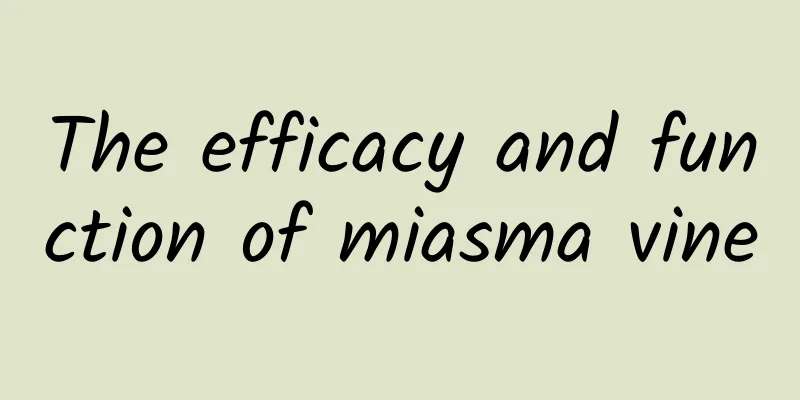What are the traditional Chinese medicines for protecting liver?

|
Liver disease has always been a big problem that many of us are very worried about. We can take some Chinese medicine to help us achieve the effect of regulating the liver. Taking Panax notoginseng, Angelica sinensis and white peony root at the same time can help us achieve a good effect of regulating the liver. It can also help us more effectively deal with influenza virus invasion and promote the recovery and regeneration of liver tissue. Let me briefly describe the Chinese medicine for liver protection. Cordyceps sinensis can reduce inflammatory cell infiltration and hepatocyte degeneration and necrosis in the liver. It can also inhibit the deposition of type I and II collagen in the liver, causing the existing collagen to be reabsorbed and dissolved, thus having an anti-hepatic fibrosis effect. Salvia miltiorrhiza can inhibit and alleviate liver cell degeneration, necrosis and inflammatory response in acute and chronic liver damage, accelerate the reabsorption of fibrous tissue, and has the effects of anti-liver fibrosis, improving liver blood circulation, and preventing cirrhosis. White peony root and its extract have obvious antagonistic effect on liver damage caused by D-galactosamine and elevated serum alanine aminotransferase, and repair liver cells. Angelica can reduce liver cell degeneration and necrosis, promote liver cell regeneration, and inhibit liver fibrosis. It can also reduce serum alanine aminotransferase and aspartate aminotransferase, and the degree of reduction shows a significant dose-effect relationship with the dosage. Chuanxiong Ligustrazine can reduce serum transaminase, maintain and improve SOD activity in liver tissue; scavenge oxygen free radicals and reduce their toxicity, has good anti-lipid peroxidation damage effect, and shows anti-liver fibrosis effect. Long-term administration of small doses of Panax notoginseng can improve liver microcirculation, promote liver tissue repair and regeneration, and resist liver fibrosis. Astragalus has antioxidant and liver cell membrane stabilizing effects, can promote bilirubin metabolism, reduce liver cell necrosis, and promote liver cell regeneration. The clinical use of Astragalus to treat icteric hepatitis has achieved satisfactory results. The liver-protecting Chinese medicines introduced above are all very good methods summarized by some authoritative experts. They can effectively help us promote liver metabolism, effectively help us promote protein synthesis in liver cells, and can also have a great protective effect on the liver damage caused by frequent drinking of our male friends. |
<<: What are the traditional Chinese medicines for liver protection?
>>: What are the traditional Chinese medicines for protecting liver and nourishing kidney?
Recommend
The efficacy and function of Longxu Potamogeton
Potamogeton kaki is a kind of traditional Chinese...
What are the effects and side effects of Danshen?
Salvia miltiorrhiza is a traditional Chinese medi...
What are the effects of Niuhuang Yangxin Pills?
People will always need to take medicine to some ...
The efficacy and function of lucky grass
As a traditional Chinese medicine, do you know th...
The efficacy and function of Xinjiang Euonymus
Recently, major TV channels have launched various...
The efficacy and function of celery
Traditional Chinese medicine requires the use of ...
The efficacy and function of Cang Erzi
Xanthium sibiricum, also known as Xanthium sibiri...
Shocking! A 2-year-old girl's intestinal flora imbalance caused her to self-harm. The reason behind it is shocking!
Recently, a 2-year-old girl named Xiaoxin from Ji...
The efficacy and function of snake slough
Medicine is a good choice for treating diseases. ...
The "ceiling" of human timekeeping: the error of this clock can reach only 1 second in 300 billion years
Produced by: Science Popularization China Author:...
The efficacy and function of mandarin duck
Mandarin duck is a kind of Chinese herbal medicin...
What are the effects and functions of Gynostemma pentaphyllum tea
Many of our friends may drink Gynostemma tea in o...
Farewell! Lu Yuanjiu, winner of the "July 1st Medal", passed away
On June 6, Lu Yuanjiu, winner of the "July 1...
Take Panax Notoginseng for slow heart rate
Panax notoginseng is a Chinese medicinal herb tha...
What are the effects and functions of elderberry
Elderberry, also known as comfrey, is a tradition...









